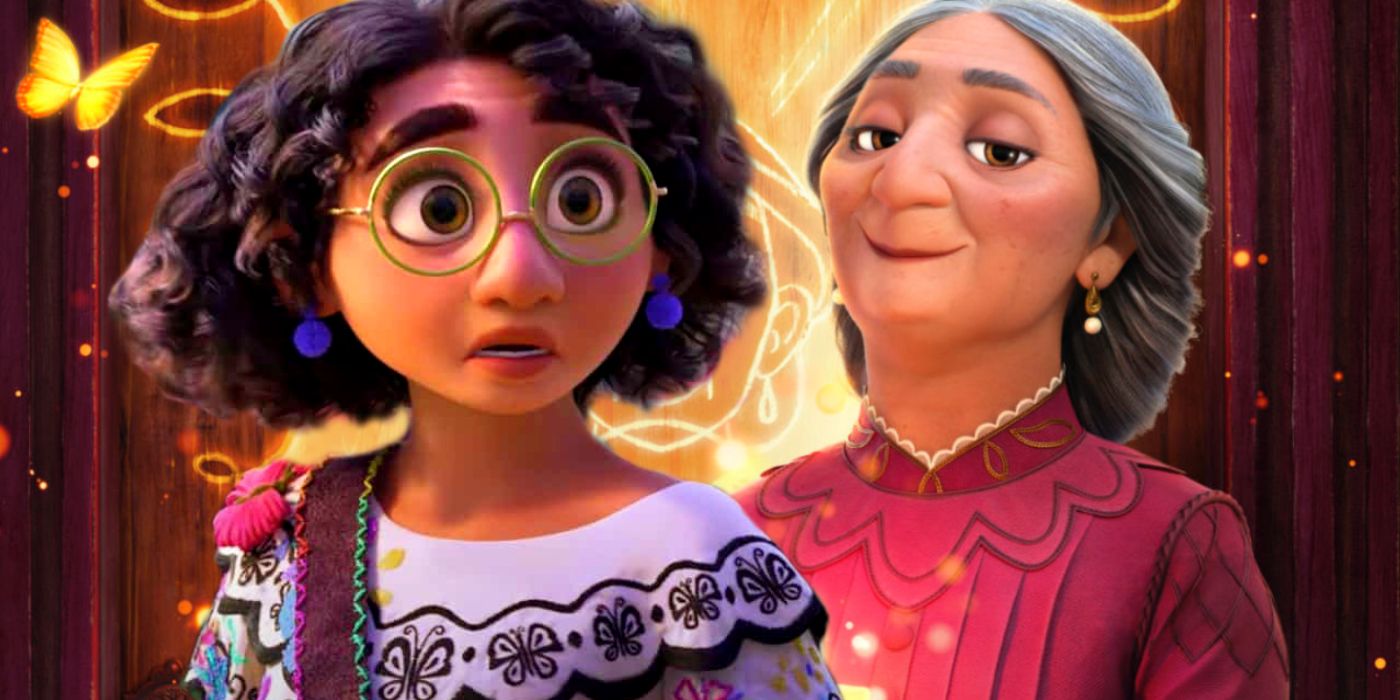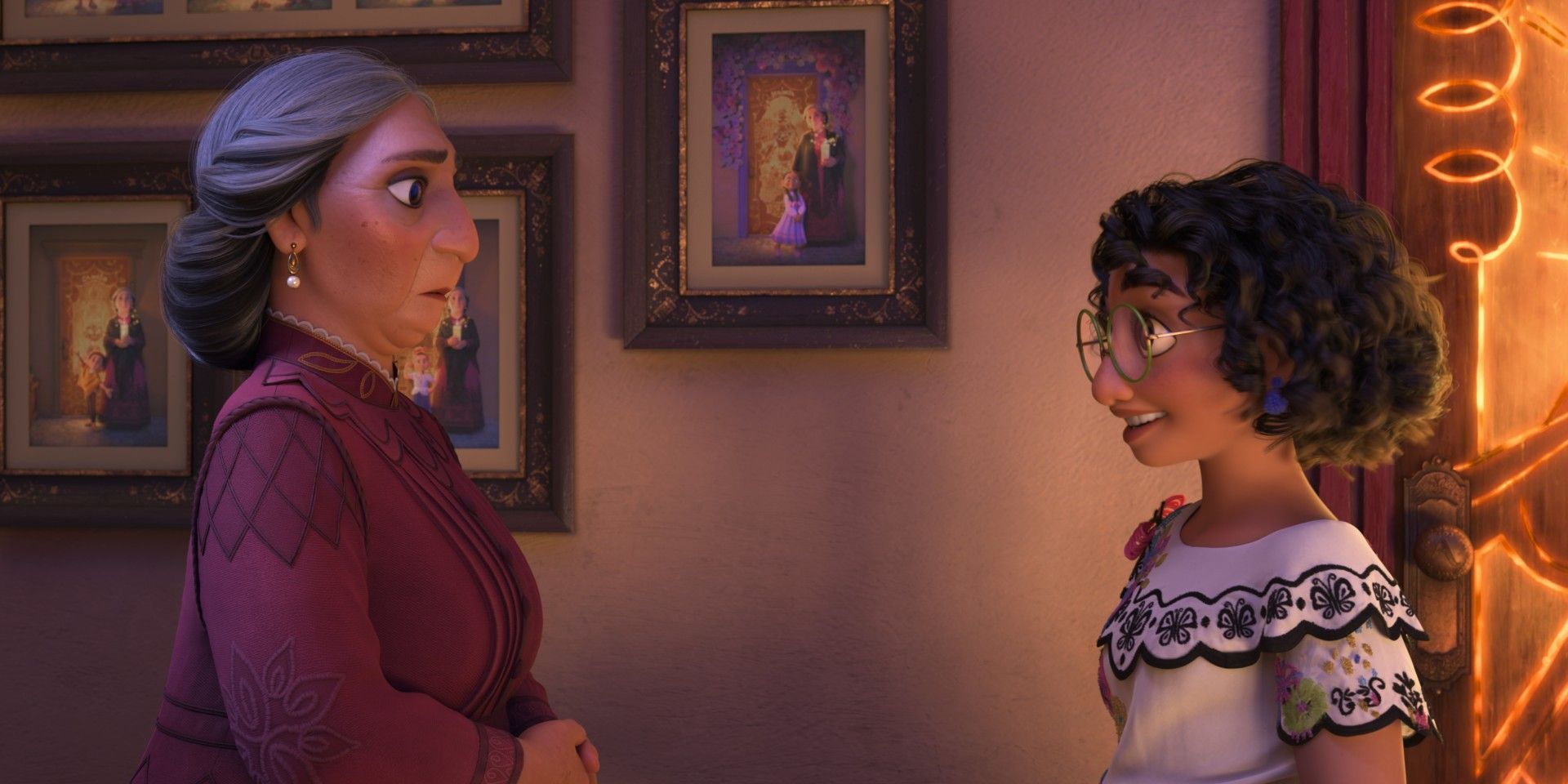Warning: Contains spoilers for Encanto!
This missing character in Encanto might prove that Disney has found a new villain formula for their animated movies, mirroring a method used by Pixar. Encanto follows the story of the Madrigals, a magical family in Colombia that has been given a miracle that ensures each of them a special ability when they reach a certain age. Everyone in the family has a superpower except Mirabel, the youngest daughter of the Madrigal family. The story is about Mirabel, who sets out to save her family’s miracle when the magic seems to be fading. Despite a big red herring with Mirabel’s uncle, Bruno, the movie doesn’t have a traditional villain like classic Disney animated films often do.
Disney has a long history of creating iconic villains for its movies. The Disney Villain archetype usually is an evil antagonist who wants something that would either cause harm to the protagonist, enrich their own life at the expense of others, or both. Disney Villains are usually written to be bad with few, if any, redeeming qualities. They are self-obsessed narcissists, like the Evil Queen in Snow White who would do anything to be the fairest in the land. They also usually crave position and power, like Aladdin's Jafar, who tries to manipulate his way into becoming sultan. However, Encanto forgoes the classic Disney Villain, opting to instead tell a story where the main conflict deals with the relationships between Mirabel and her extraordinary family and how she copes with being normal.
With the recent shift away from having traditional villains in their movies, Disney seems to have taken a cue from Pixar, whose movies typically don't have villains, and instead focus on the characters' internal conflicts or interpersonal relationships. Disney's animated movies haven't used the true villain trope since Prince Hans in Frozen, shifting away from the "pure evil" villain and more towards complex antagonists who often mean well. Like Pixar, the more recent Disney movies have focused on the personal journey of the protagonist instead of their battle against a bad guy, resulting in Disney animated movies having more of a strong emotional core. The messaging about self-acceptance and family in Encanto is definitely in line with that trend.
Disney's releases since Frozen have eliminated traditional villains. Moana, for instance, has what appears to be the villain, the lava monster Te-Ka, who turns out to be the goddess Te-Fiti, who has only become a lava monster because Maui stole her heart. Returning her heart once again restores her to the benevolent and generous mountain goddess, proving that she was never a monster in the first place. Encanto, however, removes the villain completely in favor of family conflict. Mirabel, the only one of the Madrigals without a gift, finds herself bumping heads with her magical family, especially the strict matriarch Abuela Alma. Alma is an antagonist for Mirabel, but not because she's an evil villain. Like many real families, Mirabel and her adults disagree about what's best for their family, and Abuela Alma's strictness comes from a desire to protect her family and their miracle.
The central conflict of Encanto that Mirabel doesn't feel good enough for her family, specifically Abuela Alma, is reminiscent of the conflict in Pixar's Brave, in which Merida struggles with not being the perfect princess that her mother wants her to be. Again, the problem doesn't come from a villain but from the characters learning to respect each other for who they are. Pixar's winning formula creates more relatable stories that tug at audiences' heartstrings. With pop culture, in general, becoming more favorable to complex characters and relatable villains, it's no wonder that Disney would take the cue from Pixar that their villain trope needed an update.
Disney may be done with the traditional villain for a while in favor of these stories with deeper emotional cores. Encanto's family-centered story proves that they don't need a big bad to tell an exciting story, and doing without one might actually be easier for audiences to connect to. Though villains still have their place in the Disney canon, they'll probably have a much smaller one.


